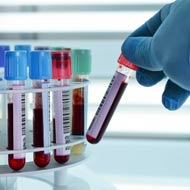Diagnostic test for feline TB now available

The new method cultures feline peripheral blood mononuclear cells in five separate reactions with control materials.
A new diagnostic test for feline TB is now available, Biobest Laboratories has announced.
The Interferon Gamma Test is intended to assist in the diagnosis of suspected feline TB cases by categorising cats which present with suggestive lesions.
The results can then be used to help veterinary surgeons decide on appropriate treatment.
It is also hoped that the test can be used to monitor treatment, with responses falling in cats in remission.
The test has been developed in collaboration with professor Danielle Gun-Moore of the University of Edinburgh and with the technical support of colleagues from the AHVLA.
Commenting on the test, Biobest Chief Operations Officer Stuart Marshall said: "This test could prove to be a very useful tool to help vets decide whether feline mycobacterial disease is due to environmental Mycobacteria, Mycobaterium microti or highly pathogenic Mycobacteria such as M. bovis.
"I would urge any vets interested in submitting samples or looking for further details on the test to contact Biobest as soon as possible.”
The new method cultures feline peripheral blood mononuclear cells in five separate reactions with control materials and TB specific antigens. It calls for a minimum of 2ml of heparinnised blood to be submitted and at that no point is the sample cooled or refrigerated.
Following incubation over 72 hours, cultures are tested for the production of Interferon Gamma in response to the antigenic stimulation.
Biobest say that the test is only performed on the first and third Thursdays of each month. Samples must be taken within 48 hours of this and send to Biobest by guaranteed overnight post.



 The latest
The latest